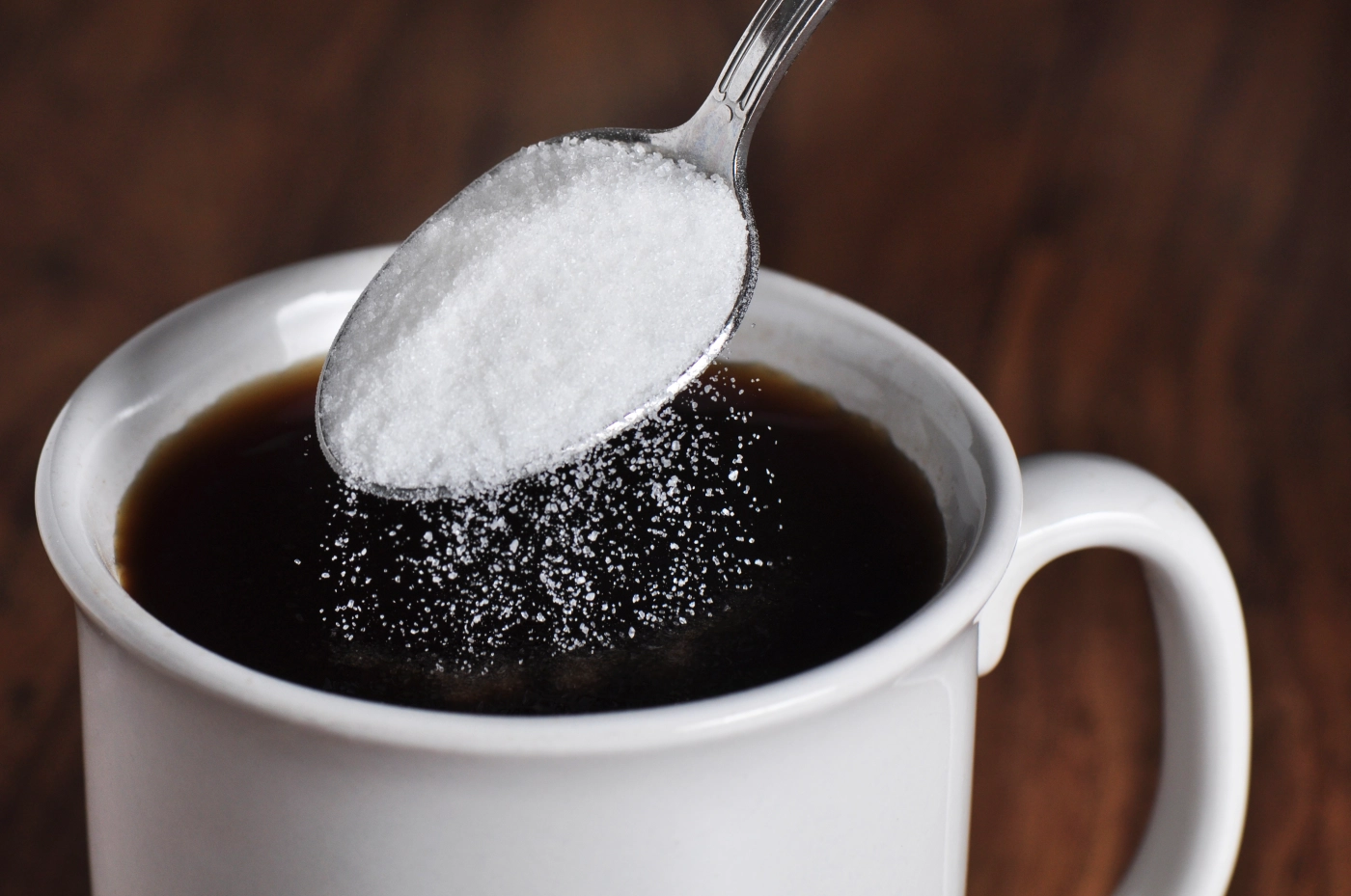Sugar and coffee are a bit like England and France, bound by history and mutual affection and stuck in a timeless battle for dominance. This may sound a bit extreme but, I assure you, it’s true! To understand how cane sugar and other sweeteners impact brewed coffee, we must start with caffeine. Caffeine is a naturally occurring molecular compound coffee trees produce to ward off pests. That is right, caffeine is actually a natural pesticide. The bitter caffeine taste, while harmless to and beloved by humans, is abhorrent to most potential coffee tree pests. The greater the pest threat during growth, the more caffeine a tree produces. As a result of the coffee tree’s instinct robusta beans, which are sun grown and low grown, have more caffeine than arabica beans which benefit from the natural pest protection of high growing elevations. In addition to natural caffeine, coffee seeds also naturally produce sugars. Generally, arabicas, which are roughly eight percent sugar pre-roast, contain about two percent of natural sugar post-roast while robusta beans contain roughly five percent sugar pre-roast and drop to one or slightly less than one percent sugar post-roast. At two percent sugar, arabica roasted coffee beans have no measurable sugar left post-roast though they still hold lovely infused sugar notes that present in the finished cup.
Now let’s jump into the coffee chemistry of a roasted up. The first set of chemical reactions a coffee bean experiences is during roasting when both natural caffeine and natural sugars burn off the bean. The darker the roast, the greater the sugar and caffeine loss. The second chemical reaction happens during brewing. During brewing, caffeine molecules bind to water molecules creating a well-balanced cup with even caffeine distribution (i.e., the flavors hitting your tastebuds are consistent). A third chemical reaction occurs when sugar is added to brewed coffee. Sugar, like caffeine, binds to the water molecules. The caffeine molecules react to this sugar invasion by clustering together to avoid the sugar molecule. At the end of this little battle over the water molecule, your brewed cup has an uneven caffeine distribution that leads to a sweeter cup as the clustered caffeine molecules now hit your tastebuds in condensed pockets rather than in a steady flow. In addition to preventing caffeine from constantly hitting the tastebuds, sugar also accentuates the sweet notes in a coffee’s aroma, encouraging your olfactory system to perceive the drink as sweet.
If you enjoy a sweet cup of coffee, you may also enjoy these 11 Natural, health-boosting coffee sweeteners. If you love a good cup of black coffee but find it too bitter, check out our tips for troubleshooting your coffee: Help, this coffee is so bitter!

Sweet and bitter sensing receptors are antagonists at the cellular level.
LikeLiked by 1 person
Thanks for the additional information!
LikeLiked by 1 person